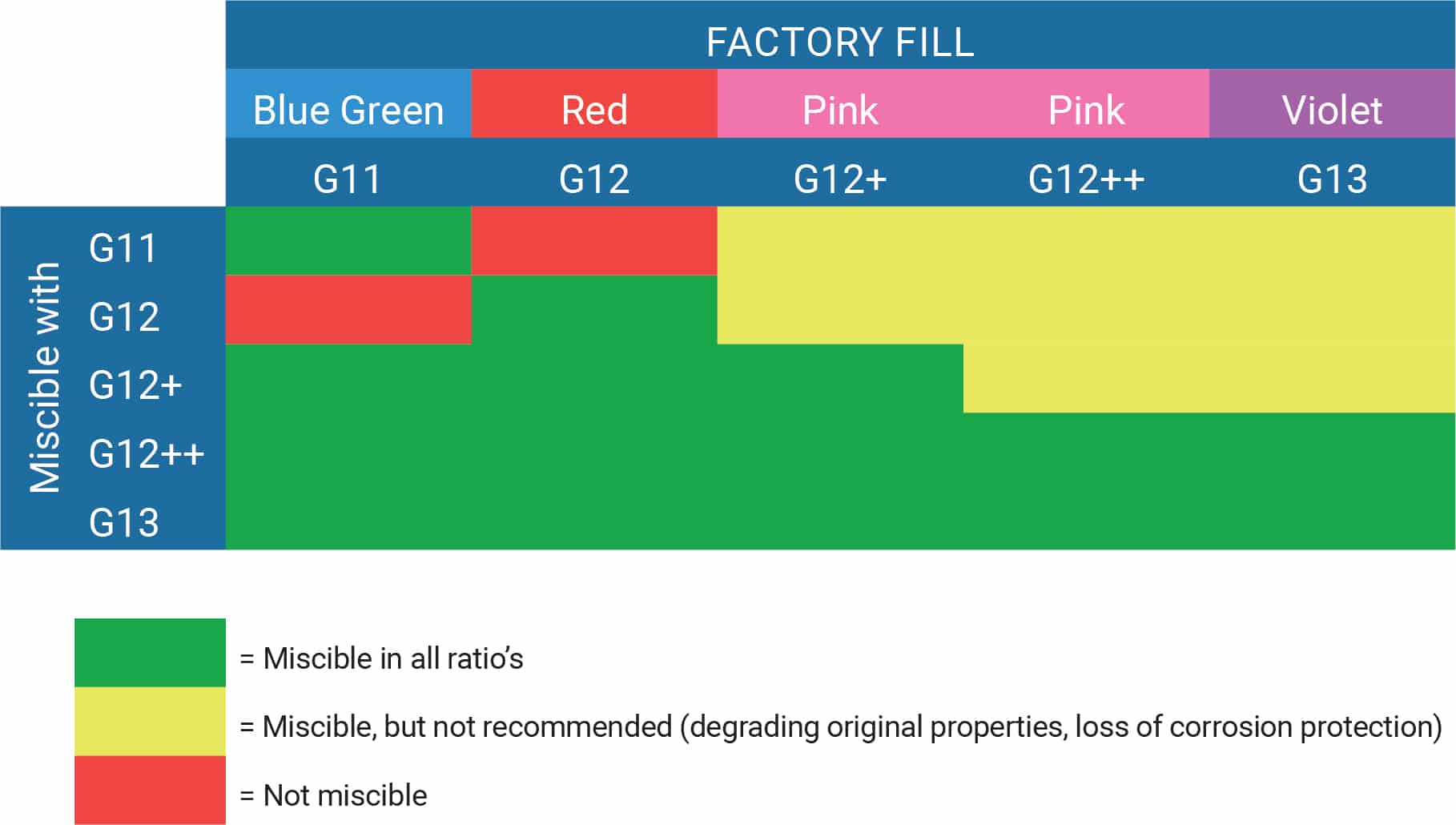TecLub offers a complete range of private label coolants that keep your engine cool and the cooling system clean, lubricated and protected against rust and corrosion. Contact us for a quotation.
Do I need coolant or antifreeze?
The terms coolant and antifreeze are often mixed up. Luckily the difference is fairly simple: a coolant is a ready mixed product, ready to be used in a cooling system. An antifreeze is the concentrated product which needs to be mixed with demineralized water before use.
What is the function of coolants?
Much of the heat generated by the fuel combustion inside your engine goes right out the exhaust system, but some of it goes into the engine heating it up. The primary job of the cooling system and coolant is to prevent the engine from overheating by transferring this heat to the air.
In addition the coolant must prevent the cooling fluid from boiling when the engine operates under harsh and hot conditions. At the same time it must prevent the cooling fluid from freezing in cold conditions. Both boiling and freezing will prevent the cooling system from working properly. Lastly, the coolant must protect the system against corrosion.
Key takeaway, the main functions of coolants are:
- Heat transfer
- Boiling protection
- Freezing protection
- Corrosion, cavitation and erosion protection
Coolant specifications
For coolants one can distinguish between international specifications and OEM specifications. Some examples of well-known specifications are:
International specifications:
- AFNOR NF R15-601
- BS 6580: 2010
- AS 2108
- ASTM D3306
- ASTM D4656
- ASTM D4985
OEM specifications:
VAG Group (Volkswagen, Audi, Skoda, SEAT)
- VAG TL-774 C (G11)
- VAG TL 774 D & F (G12 / G12+)
- VAG TL 774 G (G12++)
- VAG TL 774 J (G13)
Other OEM’s
- MB 325.5 / 325.6
- Ford ESD-M97B49-A
- GM GME L1301
- BMW / Mini GS 94000
Can I mix different coolants?
What about the compatibility and miscibility of the different grades? Are they all compatible with each other and can I mix them together? The simple answer is NO. In the below table you can see which grades are compatible:

It is always recommended to follow the OEM’s recommendation for the right type of coolant. Optimal performance and longevity of service is guaranteed by exclusive use of one type of coolant.

